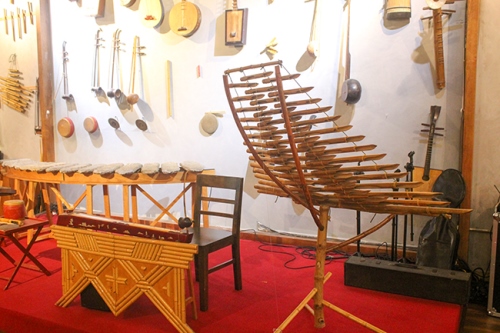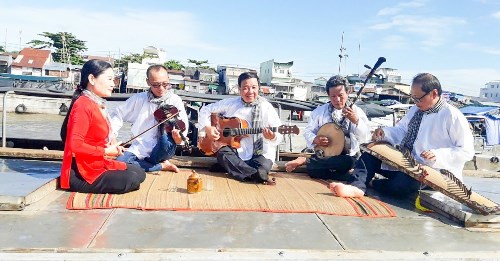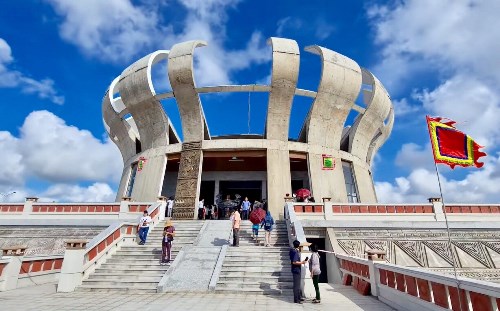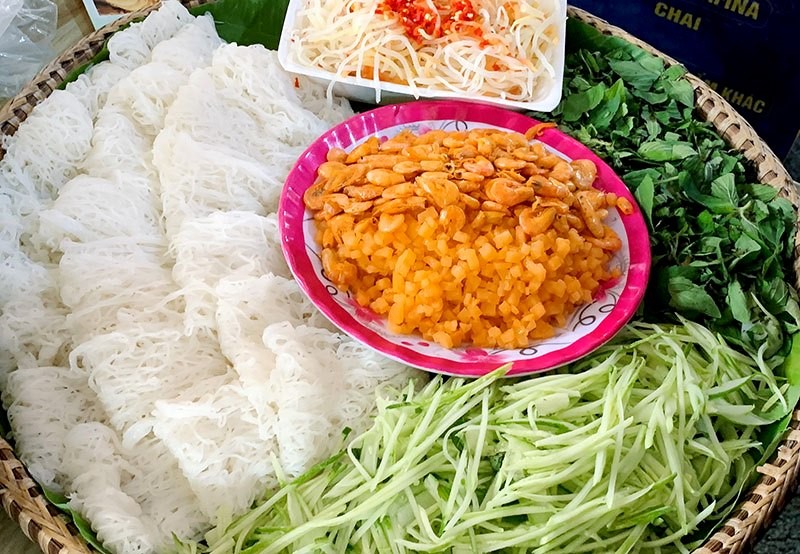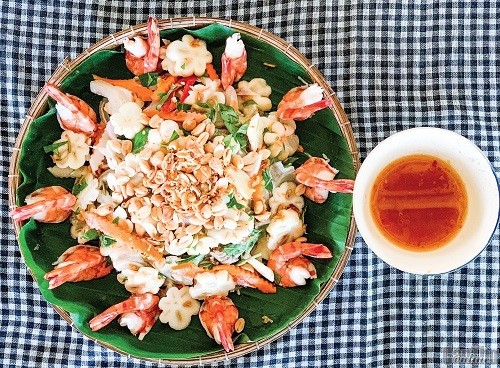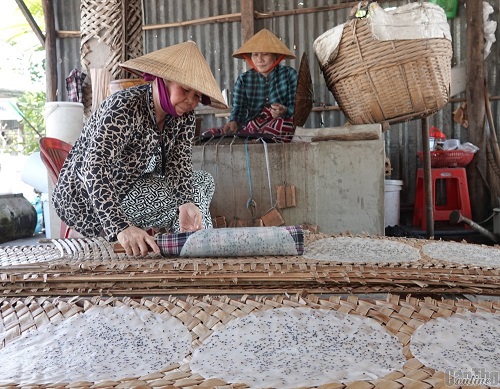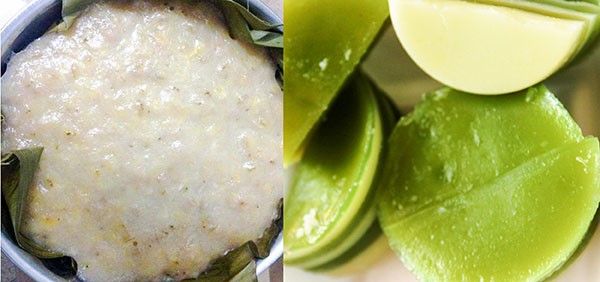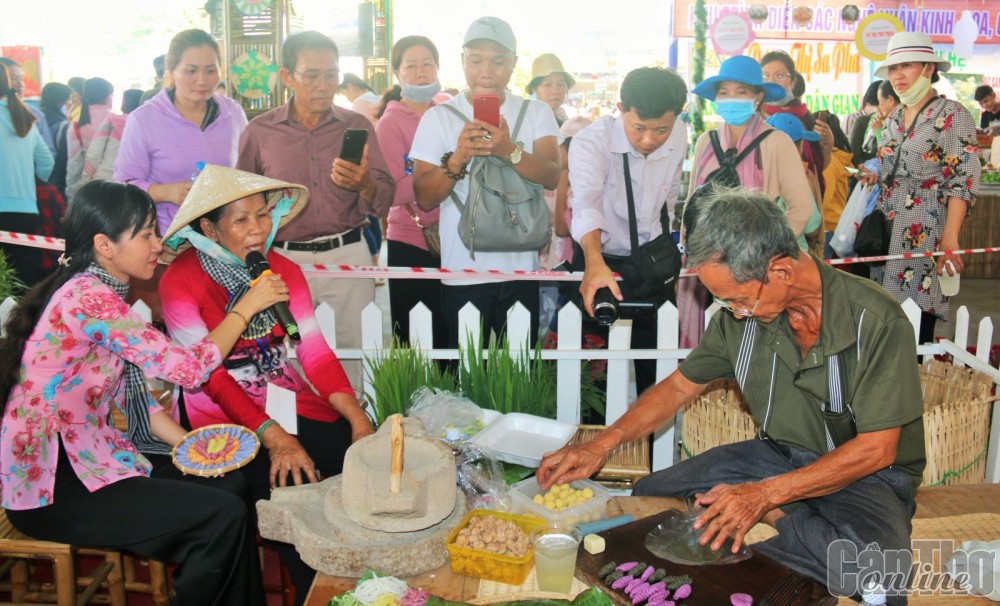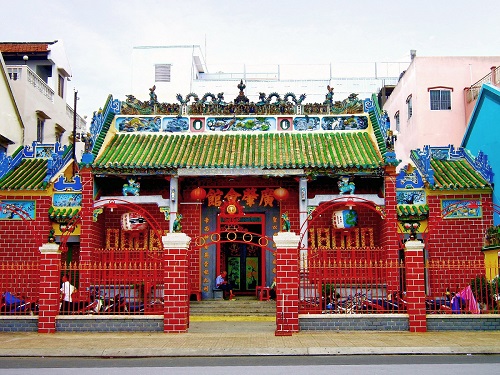
Ong Pagoda
Ong Pagoda, also known as Quảng Triệu Hội Quán, is the business club of a group of Chinese people from Guangzhou and Zhaoqing, Guangdong Province, China. They originally were Chinese immigrants to settle in Tran Giang (ancient Can Tho ) in the 17th and 18th centuries. The pagoda has an obvious Chinese architecture with many materials brought from Guangdong; stylish color and fine carvings are harmonious and beautiful. Among other Chinese gods, Quan Thánh Đế Quân is the most important to be worshiped here. The pagoda was ranked as a National Architectural Monument in 1993.
Address: 32 Hai Ba Trung, Tan An Ward, Ninh Kieu District, Can Tho City.
Nam Nha Pagoda

Nam Nha Pagoda was built in 1895, following the Minh Su sect, so it is also called Minh Su Pagoda, worshiping the Three religions: Buddha Thich Ca, Confucius, and Lao Tzu. The pagoda has a large campus with supernatural ancient architecture, shady ancient trees, bringing a peaceful feeling of relaxation. It was previously a traditional medicine store called Nam Nha Duong, later rebuilt and renamed Nam Nha Pagoda, both a place of worship and the headquarters of the Dong Du (going to Japan to study) movement (1907-1940). The pagoda consists of three main areas: the Main, the East, and the West, surrounded by an embankment park, the gate, and the fence. It encourages vegetarianism, reciting Buddha's name. The followers do not need to shave their heads. They wear simple clothes and live a virtuous life. The atmosphere in here, therefore, is always simple and close. The pagoda was recognized as a national-level historical and cultural relic in 1991.
Address: 612 Cach Mang Thang Tam, Bui Huu Nghia Ward, Binh Thuy District, Can Tho City.
Binh Thuy Communal House

Built in Giap Thin (the year of the dragon, 1844), this communal house with an area of about 4,000m2 is a place of worshipping gods, Bon Canh Thanh Hoang and his predecessors who pioneered in land reclamation to set up villages, provided vocational training to locals or people with meritorious services to the country such as President Ho Chi Minh, Dinh Cong Trang, Nguyen Trung Truc, Bui Huu Nghia, Vo Huy Tap ... With the unique architecture bearing the imprint of Southern culture, over a century, until now, Binh Thuy communal house has almost remained intact, with the quintessence in the array of carved patterns on the interior decoration system, and worshiping items. The uniqueness of Binh Thuy Communal House is also reflected in the works around the main communal house, including 4 shrines worshiping 4 gods: Agriculture, Tiger, Forest, and Irrigation. This is a rare difference found in other worship works in the country. The yearly ceremonies are Thuong Dien and Ha Dien on the full moon of lunar April and lunar December. It was ranked as a National Architectural Monument in 1989.
Address: Le Hong Phong, Binh Thuy Ward, Binh Thuy District, Can Tho City.
Phuong Nam Monastery Zen

The monastery was built on the sacred land, which marked the nation's heroic feats in the resistance war to save the country, near the heroic land - Lo Vong Cung. With a total area of nearly 4ha, the zen started its construction in 2013. It has the Buddhist architecture in the Ly - Tran Dynasty. The whole building is tiled roof structure, ironwood column frame, brick wall, floor, and walkway are tiled with “Chinese” brick. Besides the main hall, the campus is well-decorated with about 20 architecture works such as an ancestral house, preaching hall, 9-storey stupa, drum tower, bronze bell tower, monastery and guest house Institute, and pharmacy, the water house, ... built around, forming an architectural complex bearing cultural and historical significance, attracting a large number of visitors.
Address: Provincial Road 923, My Nhon Village, My Khanh Commune, Phong Dien District, Can Tho City.
Source: Tourismcantho.vn - Translated by Diep Truong





